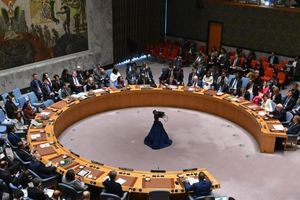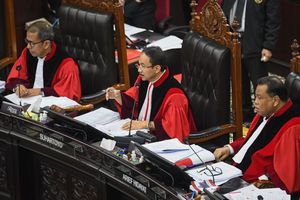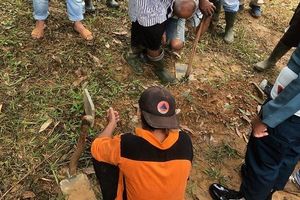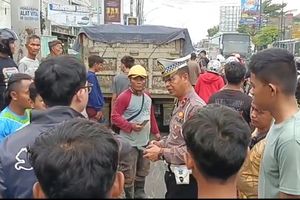CIA Tipoff Led to Umar Patek's Arrest in Pakistan
“It is our policy to send them back to their country of origin,” he said. Sumardi, the Indonesian police chief, said his country would request custody of Patek.
“We strongly hope that the Pakistani authorities are willing to give us access to him, and we would welcome his handing over to his country of origin,” he said. “He was involved in many terror attacks in Indonesia and we are ready to prosecute him according to the law.”
The CIA would presumably like to have access to Patek, but the Pakistani officer said this would happen only with the written consent of Indonesia. Indonesian officials were not available to answer that question, but the country’s anti-terror authorities have worked closely with the United States in the past.
Relations between the CIA and Pakistan’s main Inter-Services Intelligence agency have been tense in recent months, especially after the shooting by CIA contractor Raymond Allen Davis of two Pakistanis in Lahore in January. But it is unclear whether this will be a factor in the situation surrounding Patek’s arrest.
One Pakistani official said the two agencies’ relationship since the Davis affair had been “limited to information sharing” and that joint operations had stopped for now. “The two organizations need to reset their relations and re-establish trust,” he said.
Southeast Asia security officials have long worried about the linkages between militants there and in Pakistan. In 2003, Pakistan arrested a group of 12 Southeast Asian militant suspects, mostly Indonesians, in Karachi and handed them over to Indonesia, where one of them was later convicted of transferring money to fund attacks in Indonesia.
Patek spent time in al-Qaida camps in Afghanistan and Pakistan in the 1980s and 1990s and with around 300 other Southeast Asian militants later formed the nucleus of Jemaah Islamiyah. Jemaah Islamiyah members, including Patek, are believed to have carried out the Bali nightclub bombings that left 202 people dead, including 88 Australians and seven Americans.
He is also suspected in at least two other suicide bombings in Jakarta in 2003 and 2004. With the help of Australian and American funding, intelligence and expertise, Indonesia has rounded up or killed many top Jemaah Islamiyah militants since 2002.
One of Patek’s accused accomplices in the nightclub bombing, Hambali, was arrested in Thailand in 2003 and sent to the United States, where he is now being held in Guantanamo Bay, Cuba. His detention in the U.S. was a source of tension for a long time between Washington and Jakarta, which wanted him tried in Indonesia.
The country has arrested, tried and convicted hundreds of militants in a widely praised crackdown since 2001. But the organization has proved to be resilient, and its members remain keen to maintain and develop contacts with Middle Eastern and Pakistani militants.
Patek’s arrest could be a major blow since he was one of the most senior members of the group still on the run. Australian Foreign Minister Kevin Rudd welcomed the arrest.
“It is our view that the Patek arrest is potentially a major step forward in the fight against terrorism,” he said on Bali, where he is attending a regional meeting.
Simak breaking news dan berita pilihan kami langsung di ponselmu. Pilih saluran andalanmu akses berita Kompas.com WhatsApp Channel : https://www.whatsapp.com/channel/0029VaFPbedBPzjZrk13HO3D. Pastikan kamu sudah install aplikasi WhatsApp ya.





















